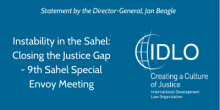Making strides to combat trafficking in persons in Liberia


To reform laws is to reform societies. At IDLO, this is something that we have had thirty years to learn. And there are no more important laws than fundamental laws – national Constitutions. One of greatest, the Constitution of the United States of America, has served that nation well for nearly a quarter of a millennium. Constitutions encapsulate a vision. In countries struggling to overcome trauma, as is the case of Kenya; struggling to be reborn, as in Somalia; or struggling to be born at all, as in South Sudan, Constitutions respond to a collective need for unity and renewal.
But Constitutions are also highly technical documents. They set the parameters for law and justice in a given jurisdiction. For this reason, they require legal resources and expertise unavailable in many developing nations. By providing those resources and expertise, IDLO is proud to have assisted several countries through complex constitutional processes.

EVENT | 10-12 May | Kigali, Rwanda
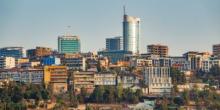
Statement by the Director-General, Jan Beagle, at the Tashkent Law Spring
Minister Davletov,
Excellencies,
Distinguished Delegates,
Colleagues and Friends,
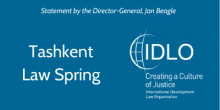
CSW65 Side event | Eliminating Discriminatory Laws: Achieving Gender Equality on Paper and in Practice during Challenging Times
Opening remarks by Jan Beagle, Director-General of the International Development Law Organization
Wednesday, 24 March, 2021
Good morning, good afternoon, and good evening,
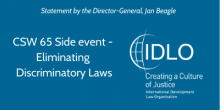
Foreign Affairs Committee, Italian Chamber of Deputies
I would like to start by expressing my deep appreciation for this opportunity to present IDLO and its contribution to the 2030 Agenda.
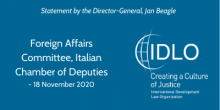
Instability in the Sahel: Closing the Justice Gap - 9th Sahel Special Envoy Meeting
Excellencies,
Distinguished guests,
Colleagues and friends,
